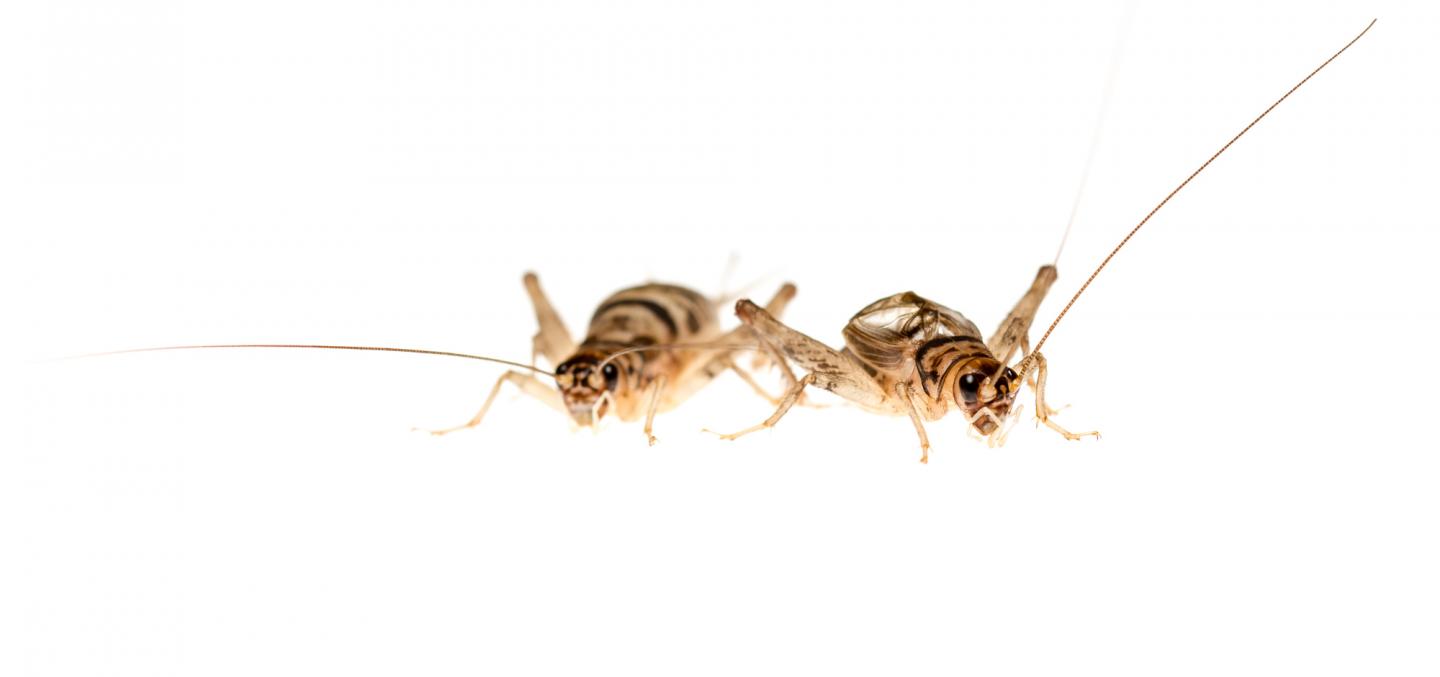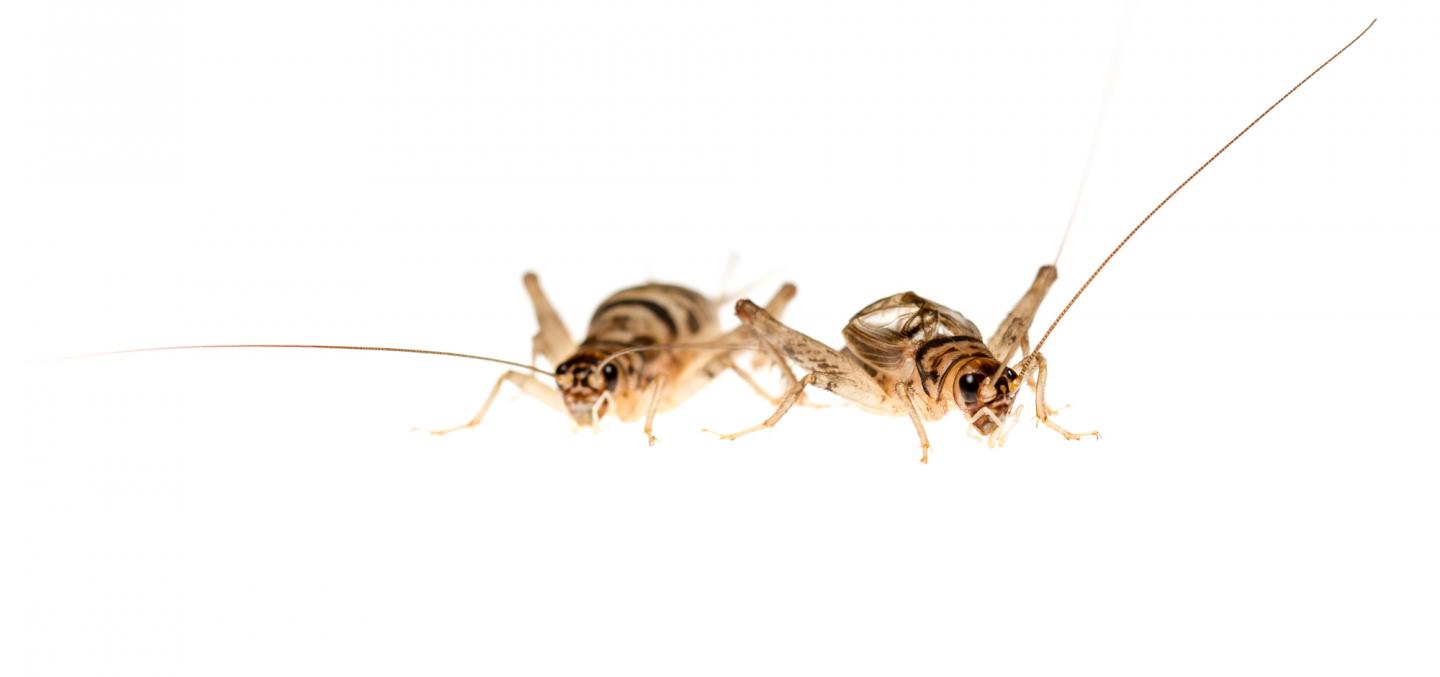
Credit: Tom Houslay / University of Exeter
Shedding a few pounds might be a good strategy in the human dating game, but for crickets the opposite is true.
Well-fed male crickets make more noise and mate with more females than their hungry counterparts, according to research by the universities of Exeter and Stirling.
It has long been believed that males who acquire ample food can adopt a "live fast, die young" strategy – burning energy by calling to attract females as soon as they are able, at the expense of longevity – while rivals with poorer resource budgets take a "slow and steady" approach, enabling them to save resources and take advantage of their savings later in the season.
But the researchers found that increased diet – rather than any strategic decision by the cricket – led the best-provisioned crickets to chirp for longer. This had no noticeable cost to their lifespan.
Meanwhile hungrier males not only signalled less – meaning fewer female visitors – but also died younger.
Senior author Dr Luc Bussière, of the University of Stirling, said the findings offered a "simpler alternative" to understanding the behaviour of crickets.
"While it was intriguing to think that males might foresee and plan for their future reproductive prospects by strategically staying quiet, what our experiment suggests is actually easier to understand: rather than relying on an ability to forecast the future, crickets appear instead to respond mainly to the resources they have in hand," he said.
Male crickets signal to females using an energetically expensive call, produced by rubbing together their hardened forewings.
The more time they spend calling, the more mates they attract.
The paper, published in Functional Ecology, studied decorated crickets, which mate about once a day on average during their month-long adult life.
Males need a three-hour recovery period following each mating to build a new sperm package, after which they are able to call again in the hopes of attracting another female.
Researchers found that a male cricket's decision about whether to call was primarily based on whether females were nearby – rather than how well-fed they were – but the better-nourished males were able to call for longer and thus increase their mating prospects.
The study also provides insights into how energy budgets keep male displays honest for choosy females over the course of the mating season.
"In nature, a 'better quality' male will likely have better access to resources," said lead author Dr Tom Houslay, a Postdoctoral Research Associate at the University of Exeter.
"Low-quality males might be able to 'cheat' by calling a lot one day, making females think they are high-quality, but this is not sustainable – so there is 'honesty on average'.
"A female may be fooled once or twice, but over time males with more energy will call more – meaning females should tend to make the 'correct' decision by preferring those males."
###
Media Contact
Alex Morrison
[email protected]
01-392-724-828
@uniofexeter
http://www.exeter.ac.uk




